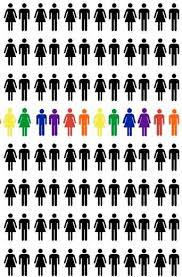
Several years ago, much of the news centered around affirmative action. Although I am generally against the concept of affirmative action, I admit that I don't know how long it will take to undo all the years of segregation.
It is very easy to point out inequality. You simply point it out. You take a definite example and say that inequality exists. One piece that always seemed to bother me was when someone would point out racism and mention that affirmative action was still needed...but the end point always kept moving. People would say that there are no black baseball players. Then no black pitchers. Then no black coaches. Then no black owners. Next it might be there is a discrepancy in left handed pitcher's ERA's who pitch on the third Tuesday in a month with a blue moon.
But how do you define equality and make laws and policies around it? I always wanted to ask people, "Under what measurable conditions would it take for you to agree that affirmative action is not needed anymore? "
I thought about that for quite a while, and I created my own list. My list is simple, looking at positive behaviors, and generally is about everyone having the same opportunities...but not necessarily the same outcome. Based on the Keep It Simple method, here is my list:
- The number of high school, college, and graduate school graduates must be equivalent among all races. Simple. I did not include parent's income, the number of students receiving aid, grants, or scholarships.
- The number of people owning a home is equivalent among races.
- The number of people owning small businesses (5-250 employees) is equivalent among races. I really don't care about the leaders fortune 500 companies as this is only a small percentage of the workforce.
- The number of teenage pregnancies is equivalent among races.
After compiling my list, fine-tuning it, and just thinking about what it means; I realized that this is how I define equality. This list isn't only about race--it could be used to define equality among between any two groups.
I know my list is very simple. My list probably doesn't represent everyone's opinion, but it is a start. I wish I would hear more opinions of the definition of equality!
